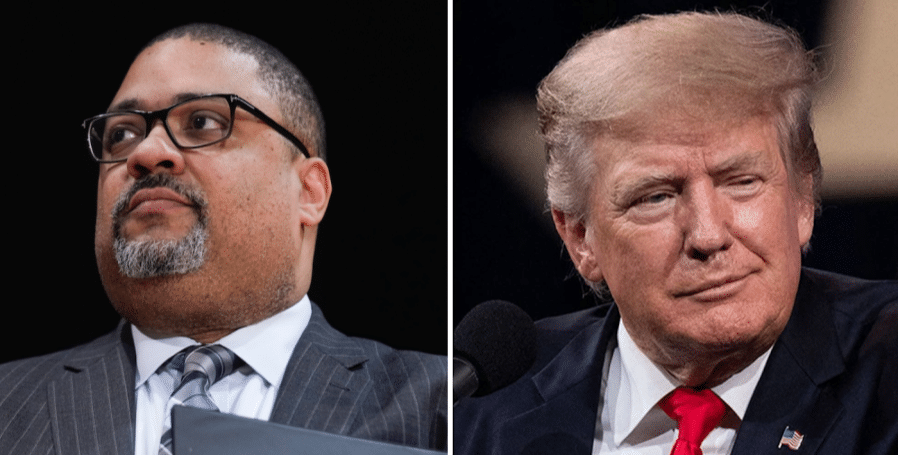OPINION: This article may contain commentary which reflects the author's opinion.
Famed Attorney Alan Dershowitz is praising former President Donald Trump for using a legal maneuver in his battle with Manhattan District Attorney Alvin Bragg.
Dershowitz argued that Trump filing a $500 million lawsuit against Michael Cohen, his former personal lawyer, was the perfect “Trump card” because it will help his case and hurt Bragg.
Cohen testified before the Manhattan grand jury that indicted Trump on 34 criminal charges of falsifying business records related to adult film star Stormy Daniels. Trump sent a payment to Daniels ahead of the 2016 election, allegedly to keep Daniels quiet about an affair the two of them had in 2006. Trump pleaded not guilty to all 34 charges.
Dershowitz called Trump’s lawsuit against Cohen a “legitimate move” and one that should have been done.
“Good move. Good move. First of all, lawyers should not be violating lawyer-client privilege, number one. Number two, he gets a discovery, if he survives a motion to dismiss, and he is going to be able to find out things the government wouldn’t turn over to him in a criminal trial. So I think it’s a very smart move to go after Trump,” Dershowitz said.
“It’s very hard these days to hide things forever. With the internet, with social media, if you get the right people you can get things that people think they have hidden. So, I’m glad we are going to get to the bottom of this. Look, transparency is essential. If people have nothing to hide, they shouldn’t be worried,” he added.
Trump alleged in his lawsuit that Cohen violated attorney-client privilege by sharing confidential information and spreading lies about him “with malicious intent and to wholly self-serving ends.”
“Plaintiff has suffered vast reputational harm as a direct result of Defendant’s breaches,” the lawsuit stated, which was filed by Trump attorney Alejandro Brito in U.S. District Court for the Southern District of Florida.
“Defendant derived a significant benefit, to Plaintiff’s detriment and at Plaintiff’s expense, as a direct result of his breach of fiduciary duty, including, without limitation, realization of substantial monetary gain in the form of compensation, advances, royalties, proceeds and/or profits received for his role in the writing, publication, promotion, and/or sale of the Books,” the lawsuit stated.
Trump is asking for over $500 million in “actual, compensatory, incidental, and punitive damages” from Cohen and any profits that he made from his podcast and books.
Cohen is already proving to be an issue for Bragg.
Law enforcement sources revealed a “supervising detective” assisting Bragg’s case against Trump has been suspended for his contact with Cohen.
“Jeremy Rosenberg, who investigates financial crimes for Bragg, had his gun removed recently for his interactions with Cohen, the sources claimed. A law enforcement source said Bragg’s office is looking at how Rosenberg shared communications about Cohen with the office,” New York Post reported. “Rosenberg also assisted in the prosecution of Steve Bannon in the alleged $15 million border-wall fundraising scam, for which Trump pardoned him. He did not return a call for comment.”
“The office is conducting a review of an investigator’s compliance with internal office protocols,” a Bragg spokeswoman said.
Cohen’s attorney, Lanny J. Davis said: “The interactions between Mr. Rosenberg, Michael Cohen, and myself were always professional and focused on Mr. Cohen’s personal security, which we appreciated.”
Last week, Bragg moved to oppose an attempt by Trump’s attorneys to move his hush-money case to federal court. Trump’s lawyers argued late last month that the case cannot be tried in a state court because the alleged violations took place while he was president, making them a federal matter.
In court documents, prosecutors in Manhattan argued that the case should remain with the state court because the former president’s “alleged criminal conduct had no connection to his official duties and responsibilities as President, but instead arose from his unofficial actions relating to his private businesses and pre-election conduct.”
